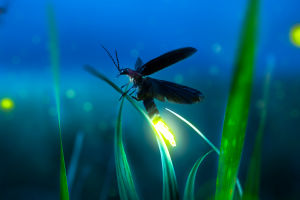They float like ghosts, glow like lanterns, and drift calmly through the water. But when we hear that jellyfish have no brain, it makes us pause. Wait—how can something without a brain survive, move, or even eat?
That's exactly what we're diving into today. Let's take a closer look at how these seemingly simple creatures manage to live in the vast ocean without the one thing we usually consider essential: a brain.
Yes, It's True: No Brain
First, the facts: jellyfish really don't have a brain. Not even a tiny one. They also don't have a heart, lungs, or bones. But that doesn't mean they're just blobs. Instead, they rely on a nerve net, a system of nerves spread through their body, especially around the edge of their bell. This nerve net helps them sense changes in light, touch, and even the direction of water flow.
It's kind of like a very, very simple autopilot system. There's no central control center like our brain. Yet somehow, this is enough for jellyfish to get by.
How Do They Move?
Jellyfish aren't strong swimmers, but they don't need to be. They move by pulsing—squeezing their bell in and out, which pushes water behind them and lets them move forward. Think of it like a slow-motion heartbeat. They mostly drift with ocean currents, and that's fine for their lifestyle.
When they do need to swim—say, to avoid danger—they use their muscle-like cells to pulse faster. The nerve net sends signals in all directions, telling their body to respond without needing a brain to make decisions.
Finding Food Without Thinking
You might wonder, how do jellyfish catch food without thinking about it? Here's the cool part: they don't need to plan. Their long tentacles are covered with stinging cells called nematocysts. These work like tiny traps. When something touches them—a small fish, for example—these cells fire automatically, injecting venom and capturing the prey.
Then, the jellyfish simply pulls the food toward its mouth, which is usually located in the center of its bell. No thinking involved. Just reflex and design.
How Do They Sense the World?
Even without eyes, ears, or a brain, jellyfish can still sense what's around them. Many jellyfish have light-sensitive spots that help them detect brightness. Some even have statocysts, small structures that help them know which way is up and down.
These basic senses are enough for them to avoid danger, find sunlight, and stay oriented in the water. For a creature that's been around for more than 500 million years, that's clearly a working system.
The Secret of Survival: Simplicity
What we find again and again in jellyfish biology is this: simplicity works. Instead of complex organs, jellyfish have evolved to do more with less. Their soft, jelly-like bodies are mostly water, which means they don't need much energy to float. They don't hunt in the traditional sense—they let food come to them.
Their minimal lifestyle allows them to survive in oceans all around the world, from warm tropical waters to the deep, cold sea.
Are Jellyfish Really That Simple?
Not exactly. Some jellyfish, like the box jellyfish, are surprisingly advanced. Scientists discovered that box jellyfish can actually learn from experience, even without a brain. In a 2023 study, researchers trained box jellyfish to avoid obstacles. The creatures changed their swimming patterns in response—proof of basic learning through their nerve net.
So, while jellyfish don't "think" like we do, they respond to the world in more complex ways than we once believed.
What Can We Learn From Them?
Jellyfish remind us that intelligence isn't the only path to survival. They've outlived dinosaurs and survived multiple mass extinctions. Why? Because their simple systems are incredibly efficient.
In fact, jellyfish are now being studied for robotic design and biomedical research. Their ability to move through water with minimal energy is inspiring engineers. Their unique stinging cells have led to advances in biotechnology and medicine.
Should We Be Worried About Them?
Sometimes, yes. When jellyfish populations grow too large—a situation known as a bloom—they can harm fishing industries and even clog power plant intakes. Blooms often happen when ocean temperatures rise or when predators like sea turtles disappear.
Still, jellyfish aren't doing anything wrong. They're simply taking advantage of changing conditions. In a way, they're a natural signal of ocean health.
So, Can You Live Without a Brain?
If you're a jellyfish—yes. They're living proof that there are many ways to survive in this world. They don't need to overthink, stress out, or plan ahead. Their ancient design has kept them floating, feeding, and reproducing for over half a billion years.
Let's Look Again
Next time we see a jellyfish at the beach or in an aquarium, let's take a moment. Behind that soft glow and slow pulse is a creature with a perfectly designed simplicity. It may not have a brain, but it certainly knows how to survive.


